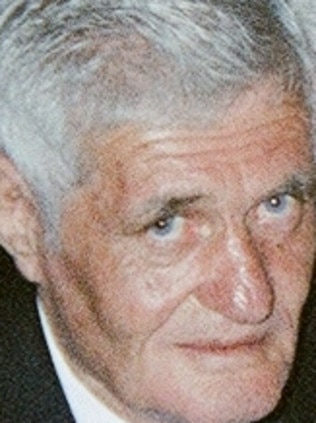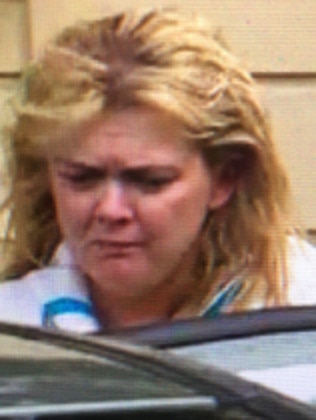Lawyers for accused murderer Leanne Carol Prak say licking bloody knife not proof of intent to kill
LICKING a dead man’s blood from a knife does not make a killer a murderer, a Supreme Court jury has been told — and nor do the seven stab wounds in the victim’s back.
- Killer ‘licked bloody knife’ as victim collapsed
- Eyewitness: Killer said ‘Now you can see what I’m capable of’
- Killer ‘tried to blame eyewitness’ immediately after stabbing
LICKING a dead man’s blood from a knife does not make a killer a murderer, a Supreme Court jury has been told — and nor do the seven stab wounds in the victim’s back.
On Friday, counsel for Leanne Carol Prak argued her “extraordinary, offensive, macabre and bizarre” actions did not mean she intended to kill Michael “Macca” McEvoy.
Grant Algie QC, for Prak, urged jurors to find his client not guilty of murder, saying they “might think” her blood alcohol reading of 0.37 explained her “more curious” behaviour.
“We know, and the forensic evidence supports this, she licked the knife and said ‘now you know what I’m capable of’ — but where does that take you?
“It proves that what she said and did was offensive, macabre and bizarre, true, and it’s an extraordinary act — but it does not prove there was an intent to kill.
“Is it reasonably possible that was a product of the severe intoxication she was suffering at the time? Is it the bizarre, disinhibited act of somebody who’s really drunk?
“You might think, ladies and gentlemen, alcohol permeates your consideration of this case.”


Prak, 42, is standing trial for murder after prosecutors refused to accept her guilty plea to the lesser crime of manslaughter.
They allege she stabbed Mr McEvoy, 65, once in the heart and seven more times in the back, likely after he collapsed, in his Holden Hill unit in May 2016.
Prosecutors have told jurors the knife tested positive for Mr McEvoy’s blood and Prak’s saliva, but had no forensic links to the eyewitness — who she tried to blame for the crime.
They further allege she capable of forming the intent to murder, despite her intoxication, because of her high tolerance for alcohol.
In his closing address on Friday, Mr Algie said the case was more complex than prosecutors wanted to admit.
“This is not simply a case of ‘oh, there’s eight stab wounds, it must be murder’ ... when you analyse the evidence, it’s not as simple as that,” he said.
He cautioned jurors against accepting the eyewitness’ testimony, saying it did not match medical evidence that suggested Mr McEvoy died within minutes of the heart injury.
“You will need to consider whether you can be satisfied these eight stab wounds were caused at the same time,” he said.
“We suggest there’s a real question mark over that, perhaps even a likelihood there was a single stab wound to the chest and death occurring shortly after.
“There’s a likelihood the subsequent stabbings to the back were to a dead man, well after the eyewitness left the unit.”
Mr Algie urged jurors to “engage in careful analysis” of the evidence before reaching a verdict.
“Whichever way you look at it, she has killed a man,” he said.
“Licking a knife really doesn’t elevated manslaughter to murder, or assist with proof of her intent.”
The jury is expected to retire on Monday to consider its verdict.
